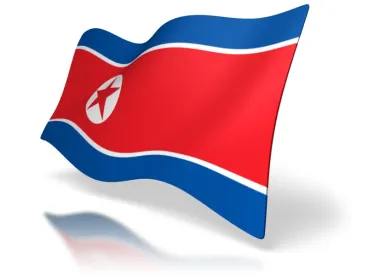The executive order expands the extraterritorial reach of existing North Korea sanctions by extending it to US persons’ dealings with non-US actors that do business with North Korea.
On September 21, President Trump issued a new executive order (EO) with respect to North Korea. While US persons already were prohibited from all commercial dealings with North Korea under existing sanctions, the EO broadens to a new level the extraterritorial reach of these US sanctions’ proscriptive jurisdiction in connection with non-US (or foreign) persons.
This impact occurs through certain key provisions of the EO:
-
Section 1(a)(iii) authorizes the United States to block the property and interests in property within the United States or that may come into the possession or control of a US person, of any foreign person located anywhere in the world who the Secretaries of the Departments of Treasury and State have determined “to have engaged in at least one significant importation from, or exportation to, North Korea of any goods, services or technology.” (Emphasis added)
-
Section 1(a)(v) authorizes the United States to block the property and interests in property within the United States or that may come into the possession or control of a US person, of any foreign person located anywhere in the world who the Secretaries of Treasury and State have determined “to have materially assisted, sponsored or provided financial, material, or technological support for, or goods or services to or in support of, any person whose property or interests in property are blocked” pursuant to the EO. (Emphasis added)
-
Section 4 authorizes the United States to block the property and interests in property within the United States or that may come into the possession or control of a US person, of any foreign financial institution located anywhere in the world or to deny such foreign financial institution from maintaining correspondent accounts or payable-through accounts in the United States, if the Secretaries of Treasury and State determine that such foreign financial institution “knowingly conducted or facilitated any significant transaction in connection with trade with North Korea.” (Emphasis added)
-
Section 8(e) broadly defines "foreign financial institution" as “any foreign entity that is engaged in the business of accepting deposits, making, granting, transferring, holding, or brokering loans or credits, or purchasing or selling foreign exchange, securities, commodity futures or options, or procuring purchasers and sellers thereof, as principal or agent; and holding companies, affiliates, or subsidiaries of any of the foregoing.”
While the EO broadly defines foreign financial institution, the EO does not define two of the most important and seemingly critical terms—“significant” and “materially.” This lack of definition could create great uncertainty as to the exact scope of the EO. Without definitions for such key terms, the goods, services, or technology that need to be involved in a targeted transaction do not need to have an identifiable percentage of US-origin content or other objectively identifiable nexus to the United States to be captured within the meaning of “significant” or “material.”
While we await the inevitable issuance of Frequently Asked Questions (FAQ) (the Office of Foreign Assets Control’s (OFAC’s) preferred vehicle for issuing explanatory statements), OFAC previously provided some insight into the meaning of “significant” in the context of the Iran extraterritorial (“secondary”) sanctions in FAQs 154 and 174. In determining whether a transaction or financial service is “significant” for purposes of those regulations, the Treasury Department said it would consider:
-
the size, number, frequency, and nature of the transaction(s);
-
the level of awareness of management of the transaction(s) and whether or not the transaction(s) are a part of a pattern of conduct;
-
the nexus between the foreign financial institution involved in the transaction(s) and a blocked Islamic Revolutionary Guard Corps individual or entity or blocked Iran-linked financial institution;
-
the impact of the transaction(s) on the goals of certain Iran-related legislation;
-
whether the transaction(s) involved any deceptive practices; and
-
other factors the Treasury Department deems relevant on a case-by-case basis.
However, it is not clear that these considerations will be applied (or even be appropriate) in the context of the Trump administration’s effort to stop foreign persons’ dealings with North Korea.
A conservative approach for non-US businesses, and in particular financial institutions, is to cease dealings with North Korea pending clarification (and potentially thereafter) and halt transactions with other foreign companies that deal with North Korea. A company that deals with North Korea, once blocked under this EO, would place any company that does business with that entity in an untenable situation because it, too, could find itself being designated as a Specially Designated National (SDN) and have its assets blocked. Few companies would welcome this potential absolute exclusion from the benefits of participating in the US economy.
Summary
This EO potentially extends the extraterritorial breadth and reach of US proscriptive jurisdiction for secondary sanctions enforcement to a level not seen in prior US sanctions programs, unless the terms “material” and “significant” are defined, and applied, in accordance with their historical applications under OFAC sanctions programs. Unlike the secondary sanctions against Iran, which covered certain sectors of Iran’s economy (e.g., energy) or had specific dollar value thresholds that needed to be triggered, the new sanctions cover all foreign persons’ “significant” or “material” dealings or financing in or support for any sector of North Korea’s economy. As such, they have the potential to be applied more broadly than the previous secondary sanctions regimes.
Of course, while the sanctions themselves may be broader, their impact likely would not approach that of the Iran sanctions, as few companies currently do business with North Korea. The most significant impact will be on Chinese, Iranian, and Russian entities, from where virtually all trade with North Korea originates.
Thus, while we await issuance of explanatory definitions, regulations, and FAQs, companies should tread cautiously when engaging with entities known to currently do business with North Korea. Moreover, due diligence and “know your customer” efforts should be enhanced immediately to capture information regarding dealings with North Korea—whether related to a particular transaction or not. Not capturing this information now could lead to unfortunate consequences when the exact extraterritorial scope of these North Korea sanctions becomes known.




 />i
/>i

